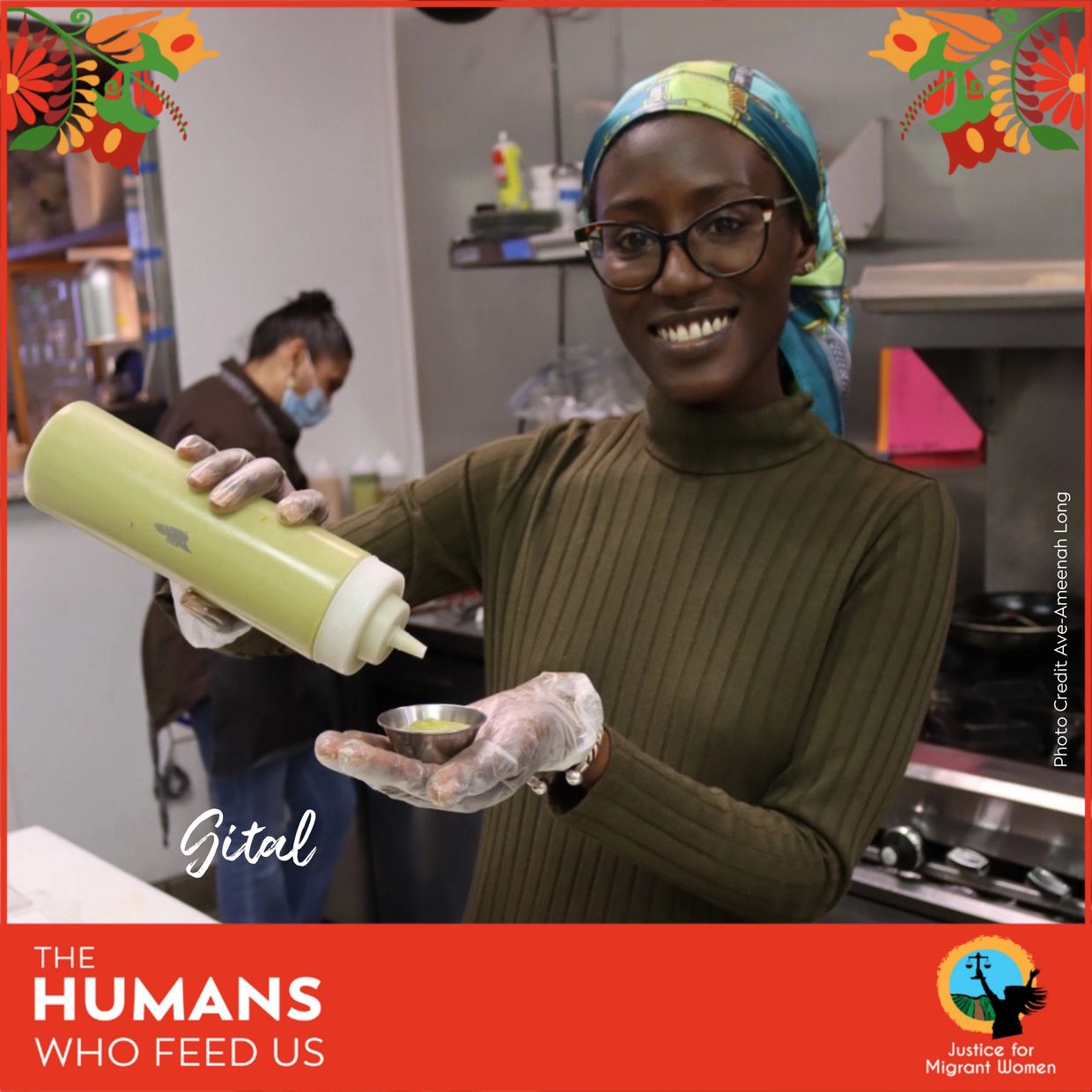Sital

Sital's Story
My name is Sital. I was born in the United States, but I was raised in a small community in Nigeria. I came back to the U.S. in 2008 when I started community college. I came back to the U.S. to find my independence and my voice. I wanted to find that liberation I was longing for.
I had several jobs before starting my journey into the food industry. I used to work in retail, babysitting, and afterschool programs, and I also worked with survivors of sexual trafficking. When the pandemic began, I was teaching English in China, and I came back to the U.S. when the lockdowns started. I really started focusing on food in 2020. In my mind, it started as a hobby during the pandemic. But as the pandemic continued, donuts turned into cupcakes, cupcakes turned into loaves, and then, before realizing it, I was making three-, four-, five-course meals for people. I decided to join the food incubation program at Oakland Bloom. I now have a business called The Hausa of Vegan, which is mainly rooted in Nigerian flavors/food. Cooking has become my passion.
In some aspects, the U.S. has lived up to my expectations, but not in other aspects. There is the idea that when you land here the opportunities are just here waiting for you at the airport and you are automatically going to make it. That is not always the case. One of the biggest disappointments and biggest teaching moments I had was when I was confronted with the concept of racism. Before coming here, I had no idea what racism was because I grew up in a place where everybody looked like me. And it took some time to realize that I needed to adapt to the notion of “being Black” in the U.S. since I am Nigerian. Yes, I am a woman, but I am also Black, a concept that I had never realized before. Being here has shown me some ugly sides of human beings, and at the same time, it has also expanded my compassion and has helped me understand many things that I otherwise would not have come to know.
I feel more comfortable and welcomed in Oakland. I wish people would try to learn more about immigrants. I wish people would do more than post political statements on their lawns. I wish they would actually do something meaningful to make people feel comfortable and welcomed; not only immigrants, but also African-Americans born here. Sometimes I feel people in the U.S. do not understand the sacrifice that it takes to be here, including all of the family and friends you left behind.
I am thankful for my health. I have endometriosis, PCOS, and fibroids, and I had a scary health-related episode recently. I am much better now, but that made me realize we need to find what works for us and our bodies, and we need to be thankful for our health.
I dream that whatever decisions I make come from a place of peace and that there is ease in the process. I hope that I have agency and the ability to decide for myself and for those around me, if needed. For my future, I hope my journey goes well.
I am thankful for this work. It is important for people to understand the food process, from the seeds to the harvesting and cooking. Food does not simply come from a package, and this project is important to make people realize that everything is connected. We are all connected, and we can connect through food. Cooking is chemistry, a skill, and an art. I love cooking, and I love it when people love my food. I want people to be amazed by Nigerian food, and I want people to try it for the first time in their lives and enjoy it.
Call to Action
Want to support the people who sustain your community?
Many migrant women workers, including farmworkers, face workplace conditions that worsen mental health, such as harassment in the workplace, wage theft and lack of paid family leave. People who migrate for work, such as those employed in agriculture, face a variety of challenges with accessing mental health care. Join Justice for Migrant Women as we call on our elected leaders to expand access to mental health resources for all people employed in agriculture.
Copyright © 2025 Justice for Migrant Women - All Rights Reserved.
Justice for Migrant Women is a nonprofit, tax-exempt 501(c)(3) organization (EIN: 83-3607138).
Click here to view J4MW's state nonprofit disclosures.
This website uses cookies.
We use cookies to analyze website traffic and optimize your website experience. By accepting our use of cookies, your data will be aggregated with all other user data.